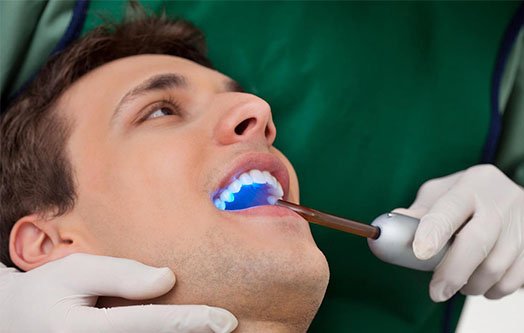
08 Oct 3 Tooth Conditions Endodontics Could Treat
An endodontist is a dental specialist who focuses on diagnosing and treating issues related to the dental pulp and tissues surrounding the teeth roots. Dental pulp is the soft tissue inside the tooth that contains nerves, blood vessels, and connective tissue. When this area becomes injured or diseased, specialized care may be required. Here’s information on three dental conditions that endodontists treat:
1. Tooth Root Injuries
Traumatic injuries to the mouth, including those from hard hits, sports-related incidents, or falls, may damage a tooth and its root structures. This force can cause the tooth to crack, become dislodged from its socket, or be pushed further into the gumline. Even if the tooth appears intact, an injury may disrupt the blood supply and nerve tissue within the pulp, leading to complications over time. Endodontists have advanced training to manage complex problems affecting the interior of the tooth.
To assess the extent of the damage, an endodontist typically performs a thorough examination. This evaluation often involves imaging to view the tooth root and surrounding bone. Depending on the specific injury, an endodontist may recommend several procedural options. These can include stabilizing the tooth by splinting it to adjacent teeth, monitoring the tooth for changes, or performing root canal therapy if the pulp is determined to be irreversibly damaged.
2. Tooth Decay
Tooth decay, which is a progressive condition, can advance through the outer enamel and dentin layers of a tooth. If it reaches the inner pulp chamber, it can lead to inflammation and infection. Endodontic root canal therapy is often recommended as a way to treat the affected pulp while preserving the natural tooth structure.
The Causes of Tooth Decay
Several contributing factors influence the development of tooth decay. A biofilm of bacteria, commonly known as plaque, can accumulate on tooth surfaces. When these bacteria process sugars from food and drinks, they produce acids that erode tooth enamel. This acid erosion may create cavities over time. Other factors that can contribute to decay include inadequate oral hygiene, a diet high in sugars and starches, and conditions that cause dry mouth, which reduces saliva’s ability to neutralize acids.
The Root Canal Process
Should you need root canal therapy, the process generally involves these steps:
- Your provider begins treatment by administering local anesthesia to the tooth and surrounding tissues.
- To keep the tooth clean and dry during the procedure, a protective sheet called a rubber dam is placed around it.
- The endodontist then creates a small access opening in the crown of the tooth to reach the pulp chamber.
- The damaged or infected pulp is carefully removed, and the inner canals are cleaned, disinfected, and shaped.
- The cleaned canals are filled with a biocompatible material, called gutta-percha, and sealed to prevent re-infection.
- A temporary or permanent filling is placed to close the opening, and a follow-up visit is typically scheduled to place a final restoration, like a crown.
3. Abscesses
Oral infections can develop when bacteria invade the dental pulp, often through a deep cavity, crack, or other injury. A dental abscess is a pocket of pus that forms as a result of a bacterial infection inside or around the root of a tooth. As the bacteria multiply, the body’s immune response can lead to the accumulation of pus, causing swelling and pressure.
The formation of an abscess occurs when a severe infection in the pulp causes tissue death, resulting in the creation of a pus-filled sac at the root tip. Since oral infections can spread to surrounding tissues, it’s imperative to seek out treatment. An endodontist may perform a procedure to drain the abscess and relieve pressure.
Root canal therapy is also a common treatment to remove the source of the infection from within the tooth. In some cases, medications may be used as a supportive measure. Some common symptoms that may be associated with a dental abscess include:
- Persistent, Throbbing Tooth Pain
- Sensitivity to Hot or Cold Temperatures
- Painful Chewing or Biting
- Swelling in the Face, Cheek, or Gums
Contact an Endodontist
If you are experiencing symptoms of a tooth injury, decay, or possible infection, contact an endodontist for a professional evaluation. Individual care plans and treatment recommendations will vary depending on each person’s specific clinical situation. A dental specialist can determine the underlying cause of your symptoms and discuss an appropriate course of action.

No Comments